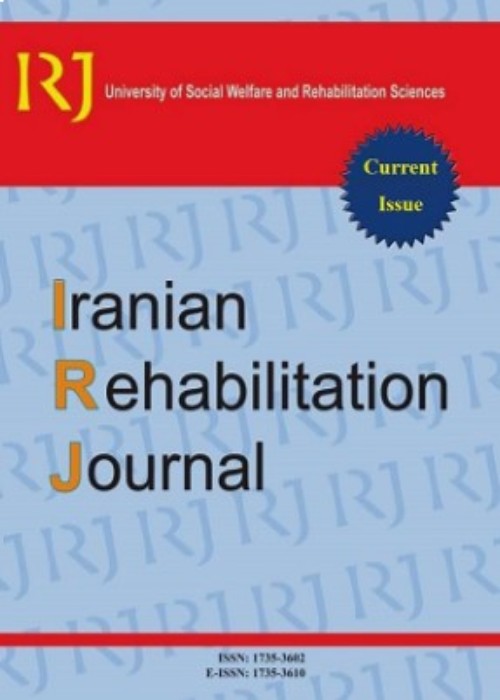Dependency Coefficient in Computerized GALS Examination Utilizing Motion Analysis Techniques
Author(s):
Abstract:
Objectives
The GALS (Gait, Arms, Legs and Spine), examination is a compact version of standard procedures used by rheumatologists to determine musculo-skeletal disorders in patients. Computerization of such a clinical procedure is necessary to ensure an objective evaluation. This article presents the first steps in such an approach by outlining a procedure to use motion analysis techniques as a new method for GALS examination. Method
A 3D motion pattern is obtained from two subject groups using a six camera motion analysis system. The range of motion associated with GALS test is consequently determined using a MATLAB program. Results
The ROMs for the two subject groups are determined and the validity of the approach is outlined and the symmetry of movement on both sides of the body could is quantified through introduction of dependency coefficient. Conclusion
Analysis of GALS examination and diagnosis of musculo-skeletal problems could be addressed more accurate and reliable by adopting motion analysis technique. Further, introduction of dependency coefficient offers a wide spectrum of prospective applications in neuro-muscular studies.Keywords:
Language:
English
Published:
Iranian Rehabilitation Journal, Volume:11 Issue: 17, Dec 2013
Page:
59
magiran.com/p1209318
دانلود و مطالعه متن این مقاله با یکی از روشهای زیر امکان پذیر است:
اشتراک شخصی
با عضویت و پرداخت آنلاین حق اشتراک یکساله به مبلغ 1,390,000ريال میتوانید 70 عنوان مطلب دانلود کنید!
اشتراک سازمانی
به کتابخانه دانشگاه یا محل کار خود پیشنهاد کنید تا اشتراک سازمانی این پایگاه را برای دسترسی نامحدود همه کاربران به متن مطالب تهیه نمایند!
توجه!
- حق عضویت دریافتی صرف حمایت از نشریات عضو و نگهداری، تکمیل و توسعه مگیران میشود.
- پرداخت حق اشتراک و دانلود مقالات اجازه بازنشر آن در سایر رسانههای چاپی و دیجیتال را به کاربر نمیدهد.
In order to view content subscription is required
Personal subscription
Subscribe magiran.com for 70 € euros via PayPal and download 70 articles during a year.
Organization subscription
Please contact us to subscribe your university or library for unlimited access!


